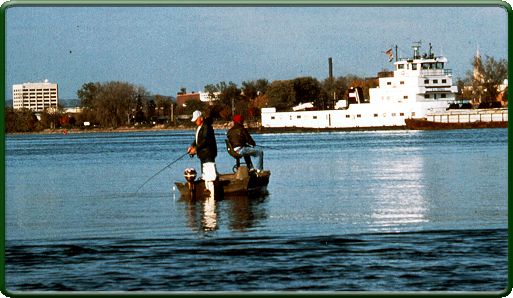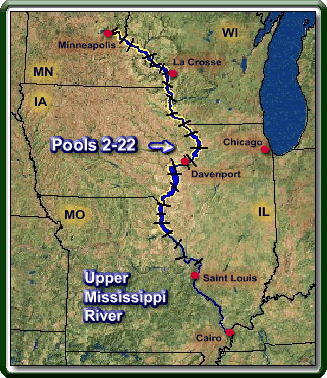Adaptive Environmental Assessment Applied to the Upper Mississippi River
Over the last 100 years, the Upper Mississippi River has been highly modified for navigation (commercial and recreational) and floodplain agriculture, primarily through a series of dams and levees.
A decline in biotic health of the system, as indicated by reduced habitat diversity and by changes in plant and animal communities, is probably associated with these modifications and with changes in land use within the watershed.
Previous management of the river, which has concentrated on individual species and on small-scale habitat rehabilitations, has had some success but has failed to stop the decline in ecosystem health.
The goal of restoring ecological health while maintaining the social and economic benefits provided by the river is difficult to achieve because we do not understand how system components interact.
Adaptive environmental assessment is a process that uses workshops and computer modeling to help river managers and interested citizens integrate their knowledge regarding the interaction of river flows, sediments, navigation, habitat, and key vegetation and animals.
This study will improve communication and understanding among stakeholders in the Upper Mississippi River System, identify data gaps, and help predict the effects of alternative management policies. The ultimate goal is to identify and implement management policies that are most likely to improve our understanding and management effectiveness for the river. Another aim is to help develop efficient monitoring and research efforts to evaluate policies once implemented.
The project was completed in September 2000.

Principal Investigator: Barry Johnson
Page Last Modified: April 3, 2018


